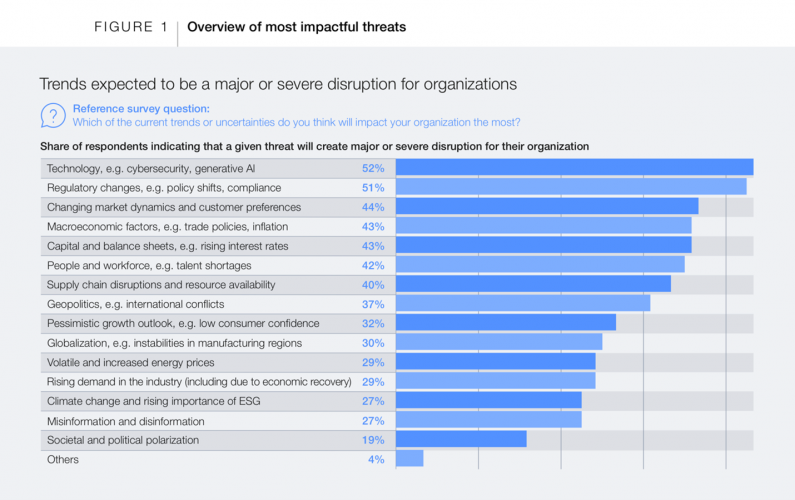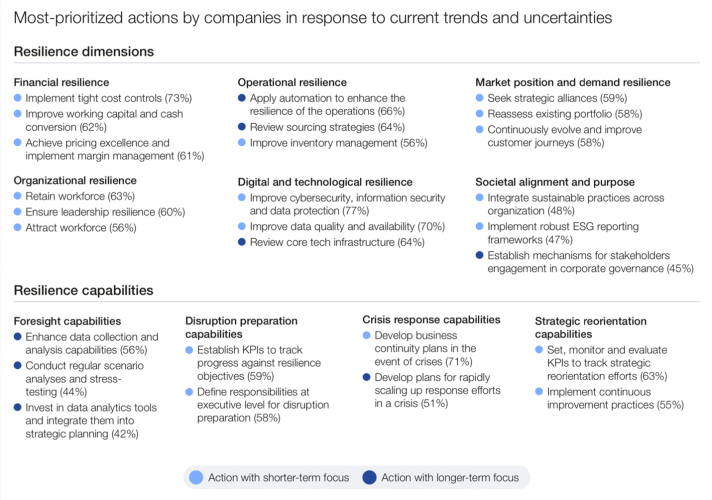How Are Businesses Going to Navigate Rising Uncertainty?
Randy Wolken, President & CEO
As volatility and uncertainty rise, leaders are learning that the ability to navigate and adapt continuously to complex business areas, including macroeconomic and geopolitical dynamics, is crucial for shaping successful resilience strategies. More organizations must invest in proactive future preparedness to build long-lasting strategies.
A recent report by the World Economic Forum examines how companies are navigating today’s resilience challenges based on insights from a global survey of over 250 private sector leaders across industries and regions. It reveals the state of resilience in the private sector, uncovers key gaps in readiness, and offers actionable recommendations for promoting collaboration in resilience-building efforts.
Organizations face an unprecedented risk landscape, with technology such as cybersecurity and artificial intelligence, as well as regulatory changes, shifting market dynamics, and macroeconomic factors including inflation and trade policies, emerging as the top concerns. As threats rise, organizations are increasingly urged to improve their investment risk management and are called upon to operate with greater accuracy and foresight.

Resilience must become a core element of their strategic planning rather than be treated as a standalone issue. At present, only 13% of companies incorporate resilience KPIs (Key Performance Indicators) into their strategies. As resilience awareness grows, 84% of companies report feeling underprepared for current and future disruptions. Many organizations focus on addressing immediate needs, favoring short-term defensive actions over forward-looking strategies.
Across industries, resilience efforts prioritize financial and digital/technological strategies, often at the expense of foundational capabilities like foresight and disruption readiness. This imbalance creates vulnerabilities that could hinder an organization’s ability to navigate prolonged uncertainty. Leadership plays a pivotal role in building resilience and must be strengthened at every level.

In this study, leaders identified foundational ways to meet the challenge. Organizations and their boards must embrace diverse perspectives to drive balanced decision-making. Company leaders need to enhance decision-making speed by using forward-thinking scenario planning. Teams require trust, autonomy, and psychological safety to thrive under pressure. At the individual level, leaders must model and support team resilience, inspire their teams to work on organizational challenges, and address key areas affecting employees, such as burnout and shifting workplace expectations.